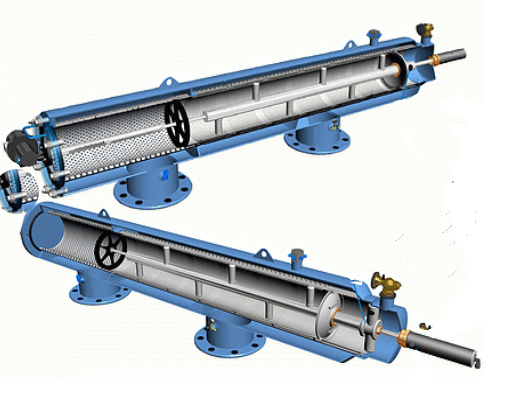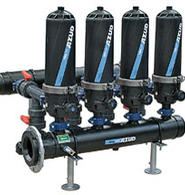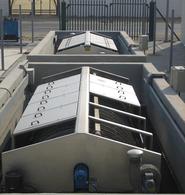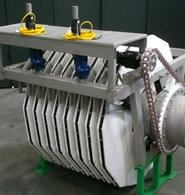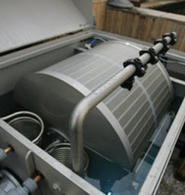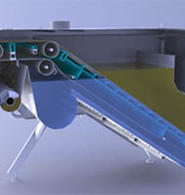Mesh filters for mechanical water treatment
The operating principle of the mesh filter is to filter dirty water through the mesh, where all the impurities are retained and removed during washing. Mesh filters implement a scanner treatment system, which can be manual or automatic. The essence of the purification system is as follows: the filtering mesh inside the filter has cylindrical shape. Dirty water enters the mesh through the filter inlet. Treated water is discharged through the filter outlet. Waste accumulates on the inner surface of the mesh.
When the mesh needs to be cleaned (a signal may be the pressure drop on the mesh, when it reaches a certain value or the flushing timer is activated), the controller opens the dump valve and activates the cleaning scanner. The scanner is a hollow tube with several suction nozzles. The internal cavity of the pipe is drained into the drainage through the relief valve.
When the scanner rotates about its axis, the nozzles move along the surface of the mesh and collect all contaminations from its surface and discharge them into the drainage. Absorption of impurities occurs due to the pressure drop between the filter inlet (P is the working pressure in the pipeline) and atmospheric pressure in the drainage downstream the relief valve.
An important feature of the technology of mesh filters for mechanical water treatment is the absence of mechanical contact of the cleaning nozzle with the mesh surface, i.e. no wear of both the mesh and the scanner.
The duration of the filtration phase in the filters for mechanical water treatment is 1-12 hours (depending on the contamination of the original liquid). The washing phase lasts 10-60 seconds.
The scanner in mechanical water treatment filters can be driven by:
- hydroturbines (rotation about the axis) and a hydraulic cylinder (translational movement along the axis) or by an electric drive with a worm shaft or hydraulic cylinder for longitudinal travel of the scanner;
- a manual drive, by turning the knob.
Advantages:
- maximum collection of solid particles contained in water;
- convenient washing system (automatic or manual);
- ease of installation;
- reliability and durability;
- a wide range of models with different design, dimensions, performance and filtration capacity;
- continuous cleaning of the mesh is possible with continuous filtration of water in case of severe contamination.



